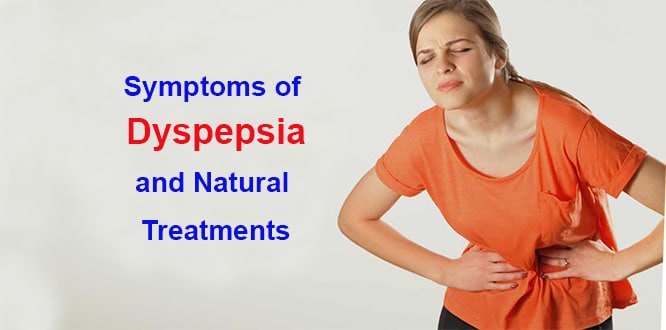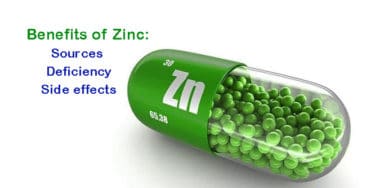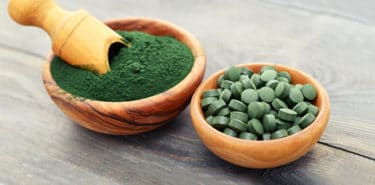Indigestion or dyspepsia is a common symptom of the digestive system. It is the general name of symptoms such as feeling of saturation, bloating, burping, heartburn and pain. It may be due to an underlying disease as well as no reason. Therefore, you should see the doctor if there are ongoing complaints or in addition to complaints mentioned above, weight loss, anorexia, vomiting with brown blood, black stool symptoms. Treatment is done according to the underlying disease. If there is not, drug treatments can be recommended to relieve the patients by reducing complaints as well as change in diet and some natural recipes.
Table of Contents
What is indigestion (dyspepsia)?
The sensation of developing discomfort occurring in the abdomen is called dyspepsia. Dyspepsia is not a disease, it is the gathering of complaints that can be changed from person to person. It is described with the symptoms such as early saturation, pain in the stomach, nausea, burping, bloating, increased flatulence in the intestines, gastric acid in the mouth and heartburn. Complaints can be occasional, as well as daily.
Causes of indigestion
Although the dyspepsia may be due to the underlying disease, the underlying cause cannot be diagnosed (60-75%). Diseases, stressful life, smoking, some drugs used or some foods and drinks cause dyspepsia. It can also be seen frequently during pregnancy.
Foods causing dyspepsia
- Excessive consumption of soda, coffee, tea, alcohol
- Foods with too much fat, spicy and tomato paste
- Chocolate
In addition, fast food can cause dyspepsia. But dyspepsia is not seen in everyone consuming fast food. However, the risk may increase.
Diseases causing indigestion
- Peptic ulcer: General name of ulcers (wounds) in the stomach and duodenum.
- Gastritis: Inflammation of the lining of the stomach.
- Gastroesophageal reflux (GER): a common disease, where acid from the stomach leaks up into the esophagus (gullet).
- Irritable bowel syndrome
- Digestive system cancers
- Psychological diseases: Anxiety disorder, depression
- Gallbladder diseases
- Diabetes: It can cause dyspepsia by slowing the gastric discharges down.
- Helicobacter pylori: It is a type of bacteria that can settle in stomach and cause the gastric ulcer and cancer.
- Lactose intolerance: It is the absorption deficiency of sugar called lactose found in milk and dairy products.
- Celiac disease: It is a disease caused by allergy to gluten protein found in wheat, rye and barley.
- Pancreatic diseases

Medications causing dyspepsia
- Non-steroidal anti-inflammatory products: Commonly used for pain relief, antipyresis and suppression of inflammation. Naproxen, ibuprofen and diclofenac are in this group.
- Steroids: Used to suppress inflammation in the body. Popularly known as ‘cortisone’. Methylprednizaolon and dexamethasone are in this group as well.
- Aspirin
- Some antibiotics: being used in the treatment of bacterial infections. Tetracycline, clarithromycin group antibiotics can cause dyspepsia.
- Iron supplements
- Metformin: An oral drug being used for diabetes.
Types of dyspepsia (indigestion)
It can be classified in two type as organic dyspepsia and functional dyspepsia.
- Organic dyspepsia: The type of dyspepsia where the underlying cause can be found. It may occur due to diseases such as peptic ulcer, reflux, stomach cancer, and certain medications.
- Functional dyspepsia: The type of dyspepsia that the underlying cause cannot be found with today’s diagnostic techniques. It is the most common type of indigestion and has a chronic course.
Symptoms of indigestion
- Discomfort in upper abdomen
- Early saturation even after a small portion of meal
- Bloating after meals
- Heartburn in stomach and esophagus
- Burping
- Nausea
- Flatulence in the intestines and stomach
WARNING: Excessive vomiting, unexpected (causeless) weight loss, continuous abdominal pain, difficulty in swallowing, vomiting in the form of bloody coffee grounds and black colored stools are alarming symptoms. These complaints can be a messengers of important illnesses, a doctor should immediately be seen.
Diagnosis of dyspepsia
Diagnosis is made by medical history, physical examination and imaging methods. Further examinations might be needed in necessity.
- Medical history: The duration of the complaints, the area and the relationship with the food, the drugs used, the eating habits and the accompanying diseases and other symptoms are questioned.
- Physical examination: Because some liver and biliary diseases may develop jaundice, skin and eyes are checked for discoloration. Detailed abdominal examination is performed.
- Laboratory tests: Especially in men, there may be bleeding in the digestive tract, if anemia exists. Blood glucose can be checked for diabetes. Biochemistry and complete blood count tests are evaluated for these reasons.
- Occult blood test in the stool: Occult blood detection is performed in the stool sample. It is used in cancer screening.
- Endoscopy: The process of imaging of the first part of the esophagus, stomach and small intestines is called endoscopy by entering the mouth through a flexible thin device with a camera. It is used to diagnose any underlying disease. Sample tissue might be taken for pathologic evaluation where necessary. In some cases, it is used for therapeutic purposes when the alarm symptoms are present.
- Imaging methods: When required, abdominal X-ray, abdominal ultrasound, computed tomography and magnetic resonance imaging (MRI) can be used in the diagnosis of diseases causing dyspepsia.
- Helicobacter test: Since Helicobacter causes dyspepsia due to gastric ulcer and gastritis, it should be determined. For this purpose, the presence of bacterium is investigated by breath test or, gastric tissue test taken by blood, stool and endoscopy sampling.
Treatment of indigestion
If there is a disease that causes indigestion, the disease is treated first. If not, the goal is to alleviate the symptoms, but to avoid treatments that are prolonged and ineffective which as well may have side effects. The effect of drugs used in treatment may vary from person to person. Because of this, the doctor should be seen regularly. Drug switches can be made if necessary. Treatment in patients should first be supported with food and beverage changes, simple life changes and medications.
Dyspepsia Treatment with medication and their effects
- Proton pump inhibitors (PPI): These medications reduce the production of acid by blocking the enzyme that produces acid. The reduction of acid with PPIs prevents ulcers. They are used once a day and in the morning. Lansoprazole, pantoprazole, omeprazole are examples of PPIs.
- H2 receptor blockers: These are the drugs that treat the indigestion by suppressing the acid secretion in the stomach. May cause diarrhea, constipation, headache, rash and itching. Famotidine, nizatidine and ranitidine are the examples.
- Antacids: They are basic medications. They are effective in dyspepsia by reducing the effect of acid in the stomach. Aluminum, magnesium compounds are some of those drugs. Excessive use of magnesium may cause constipation, diarrhea.
- Medicines forming protective layer in stomach: They cover the wound surface and protect it from acid in cases such as peptic ulcer. They are taken 1 hour before meals and before going to bed. They are drugs such as sucralfate and bismuth compounds.
- Prokinetics: Increases the performance of the digestive system and stomach, accelerates gastric emptying and reduces indigestion. Domperidone and metoclopramide are examples. May cause depression, involuntary movements and muscle spasms.
- Antibiotics: Antibiotics such as amoxicillin, clarithromycin and tetracycline are used for the treatment of Helicobacter pylori infection.
- Antidepressants: Antidepressants sometimes ease discomfort by reducing the sensation of pain. Side effects may include nausea, headaches, agitation, constipation, and night sweats.
What is good for indigestion?
- In some patients, dyspepsia complaints decrease with dietary changes. Physician and dietician recommendations should be taken to follow a proper diet.
- Regular exercises, activity and some natural methods can help.
- Stress-free life may reduce dyspepsia complaints.
Methods to relieve indigestion
Some methods can reduce dyspepsia by preventing nutrients enter to the esophagus.
- Avoid wearing tight-fitting garments since they compress the stomach, causing its contents to enter the esophagus.
- Sleep with your head elevated (by using pillows)
- It has been observed that lying in supine and to the right hand side increases dyspepsia complaints. Lie down to your left hand side when sleeping.
- If you have excessive stress and psychological problems, you can get psychotherapy, relaxation exercises and meditation.
- An active life reduces indigestion by accelerating bowel movements and strengthening abdominal muscles. Exercise at least 2 days / 30 minutes / week. But do not eat 1 hour before exercise.
The nutrition types well for indigestion
Many studies on diet types for dyspepsia have yielded different results. In this respect, the following diets are recommended.
- Eat a small amount of food, keep your mouth closed when chewing to prevent from air entering into the stomach.
- Stay away from fatty, greasy, or spicy foods
- Do not consume yeasty foods such as pastry, packaged and preserves added foods, tomato paste foods, legumes and pickles that will cause bloating.
- Avoid caffeine and acidic beverages such as coke, tea and coffee.
- Stop smoking and alcoholic beverages.
- If you have lactose intolerance, stay away from dairy products such as milk and cheese and ice cream. In this disease, since sugar called “lactose” found in milk and dairy products cannot be digested, it may develop indigestion.
- Reduce taking nutrients that can increase indigestion by causing constipation. Eat foods rich in fiber that regulate bowel movements, such as vegetables, fruits, cereals.
- Garlic and chrysanthemum tea can increase indigestion when over-consumed.
Herbal remedies for indigestion (dyspepsia)
WARNING: Herbal therapies and natural methods may be helpful in indigestion as well as may cause complaints or side effects. It can change the effects of drugs being used for indigestion or other reasons. Because of this, you should always consult your doctor before using.
- Lemon juice: It facilitates digestion by neutralizing stomach acid with its basic effect after ingestion. Drink one tablespoon of lemon juice mixed with warm water a few minutes before eating meal.
- Ginger: Reduces acidic effect. You can boil one or two ginger root with 4 cups of water and drink with sweeteners. Don’t consume more than 3 grams because it may cause burning in throat and esophagus and also flatulence in stomach
- Fennel seeds: Good for digestion and other digestive disorders when used after meals. Boil half a tablespoon of crushed fennel seeds in water for 10 minutes. There may be side effects such as nausea, vomiting, sun sensitivity.
- Cumin: Due to the ulcer inhibitor and spasm reducing effects, it can be useful in gastric and digestive system diseases. You can use it by adding to meals or boiling in water. Some people may cause skin rash and itching.
Natural solutions to indigestion
The following methods should be applied by specialist physicians. Since the patient may have various side effects, he / she should state all the diseases and the drugs he / she uses.
- Acupuncture: It is the stimulation of the body by injecting needle into certain areas and ear with different techniques. No drug or similar substance is given to the patient. It is used in dyspepsia due to regulating acid secretion.
- Homeopathy: It is the treatment system that helps the body to heal itself with the selected homeopathic individualized medicines.
- Hypnotherapy: It is an action or method designed to obtain change in consciousness, awareness, memory, and behavior of another person. Especially useful in the treatment of indigestion due to psychological reasons
Herbal teas for indigestion
Mint tea
It has anti-spasm effect. It can be consumed in cases indigestion and nausea. A cup of mint tea after a meal can relieve indigestion. It should not be used if the complaints are due to reflux since it expands the lid between the esophagus and stomach. Put 2 cups of boiled water into a glass jar with a lid and place 2 tablespoons of dry or fresh mint in it. 10 min. wait for infusion. You can drink after filtering.
Chamomile tea
It is known for its relaxing and soothing effect. In addition, it helps to relief dyspepsia by reducing the stomach acid in the digestive system. Add 2-3 tablespoons dried chamomile flowers to half a liter of boiled water. Then wait for 3-5 minutes to infuse, then filter. Because of the anticoagulant effect of Chamomile Tea, don’t use it without consulting your doctor if you are taking anticoagulant medication.
Recommendations for those suffering from indigestion and bloating
- Be sure to follow the doctor’s recommendations and follow your visit schedule regularly.
- Know well the side effects of the medications you are using and how to avoid these side effects.
- Stop smoking. Because smoking may damage the stomach barrier.
- If you are overweighed, get help from a dietician.
- If you have any food or drink that increases your complaints of indigestion, stop eating them.
- Give your doctor information about your condition so that the medication you use due to another illness does not increase your indigestion.
- Do not eat and drink at least 3 hours before bedtime. Also Check: >>> Indigestion




